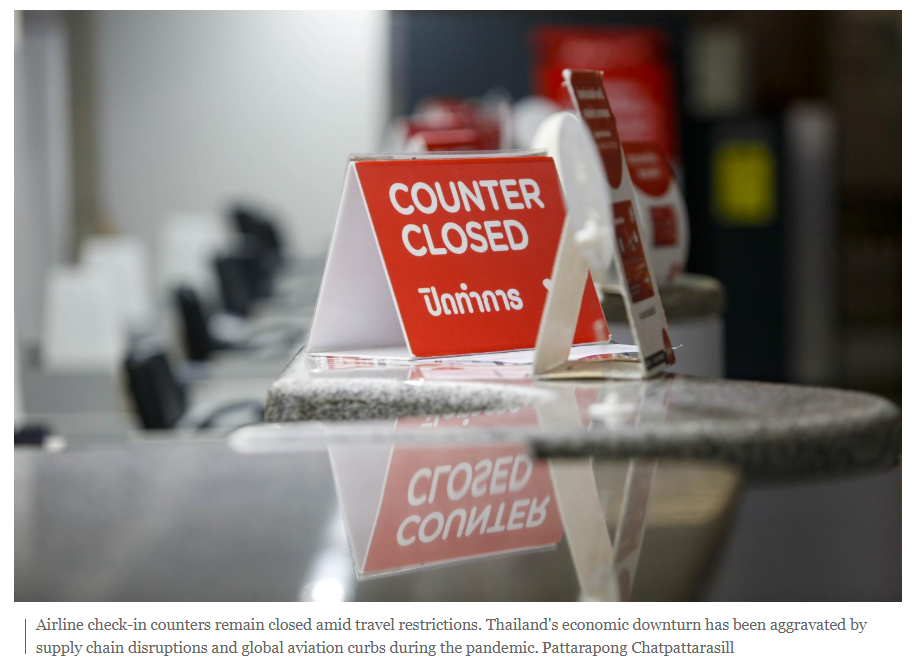Thailand: World Bank grim on GDP
The World Bank has slashed Thailand’s GDP outlook for 2020 to a 5% contraction, a drastic cut from 2.7% growth projected previously, as supply chain disruptions and lockdown measures from the coronavirus crisis have triggered an economic downturn.
“Factory closures and the disruption of the production of intermediate inputs have had a negative impact on supply chains in Cambodia, Malaysia, Myanmar and Thailand,” the World Bank said in the June 2020 edition of its “Global Economic Prospects” report.
“Domestic restrictions and external spillovers have resulted in a dramatic plunge in consumption, investment, production and trade flows, leading to the sharpest fall in activity since the Asian financial crisis for most countries,” the bank said.
Among the major economies, the largest downward revisions for 2020 are in Malaysia, the Philippines and Thailand, at 7.6, 8.0 and 7.7 percentage points below January’s forecasts, the global lender said.
“This reflects the significant impact of domestic lockdown measures, as well as the impact from reduced tourism, disruption of trade and the manufacturing sector, the spillovers from financial markets and lower commodity prices in Malaysia,” the World Bank said.
The grim forecast is in line with a 5.3% full-year contraction projected by the Bank of Thailand and a 5-6% decline predicted by the National Economic and Social Development Council.
Such a performance would mark the worst decline since 1998, when the Asian financial crisis dealt a severe blow to the economies of Thailand and countries across Asia-Pacific.
The World Bank’s regional economic outlook is predicated on major countries in the region avoiding a second wave of coronavirus. The outlook assumes that a severe first-quarter contraction in China and a similar contraction in the second quarter for the rest of the region will be followed by a gradual and sustained recovery.
The outlook is also based on the assumption that sizeable fiscal and monetary support measures implemented by major economies are successful in averting a prolonged recession and financial crises.
“By the second half of 2020, these are assumed to result in a recovery in global import demand, a normalisation of global financial conditions, a resumption of capital inflows to the region and no major re-escalation in trade tensions between China and the US,” the bank said.
Thailand’s economy is anticipated to rebound to growth of 4.1% in 2021, up from 1.3% projected previously, according to the World Bank.
But a second wave of viral outbreaks in countries with subsiding active cases remains a real possibility.
“A sharp rise in the number of Covid-19 patients requiring hospitalisation could renew pressure on the most robust health care systems in the region,” the World Bank said.
Source: https://www.bangkokpost.com/business/1932128/world-bank-grim-on-gdp


 English
English




